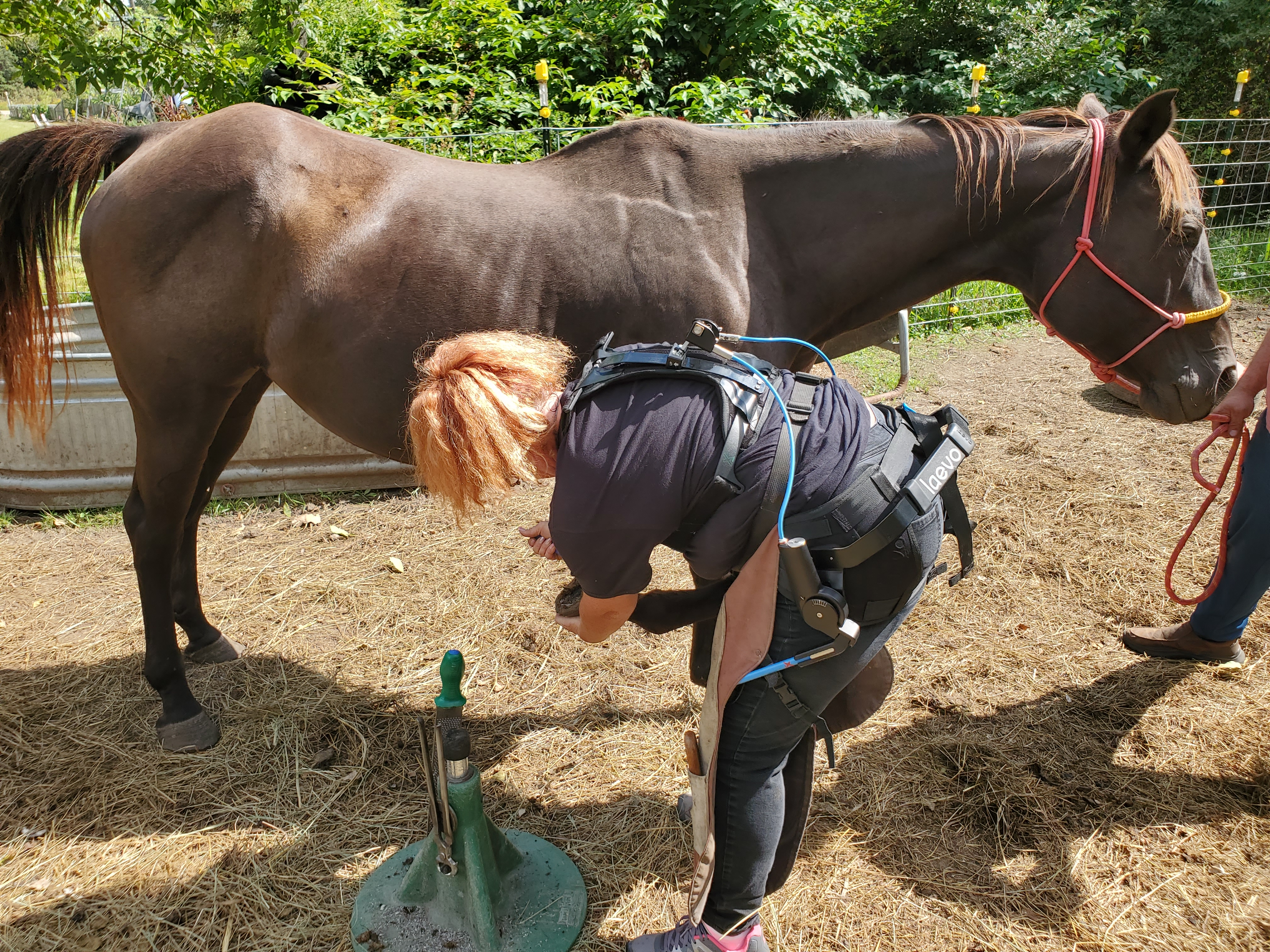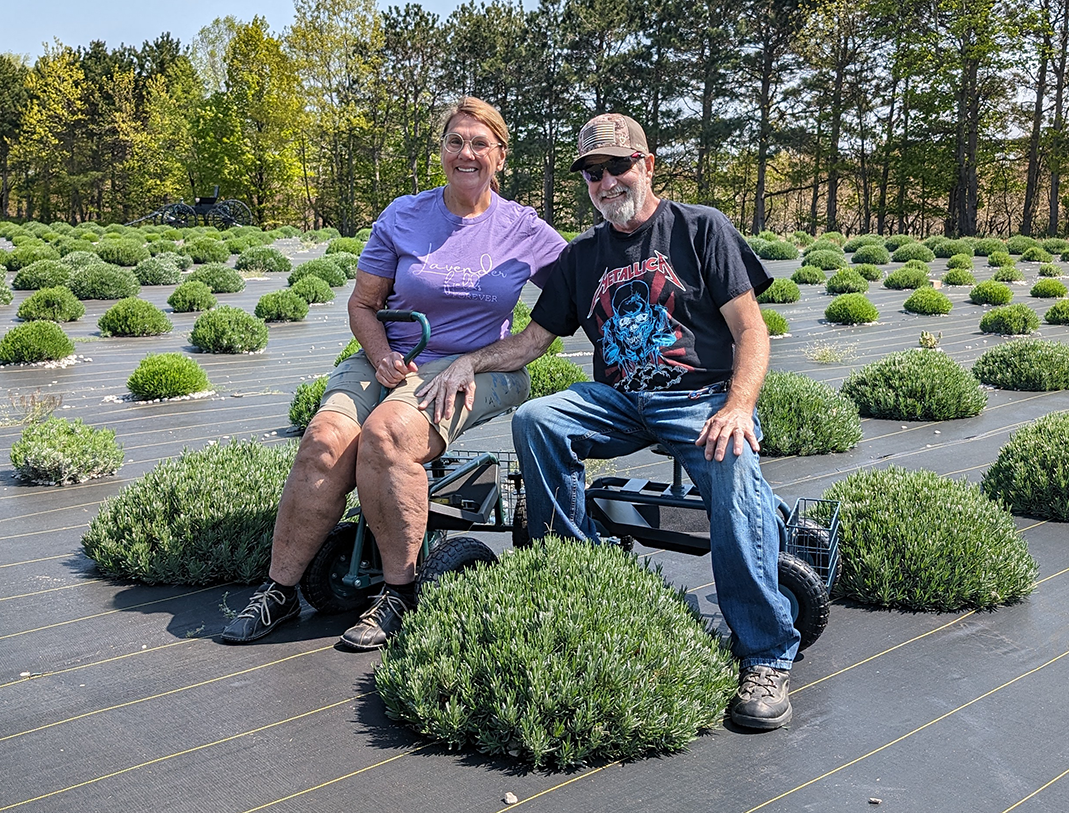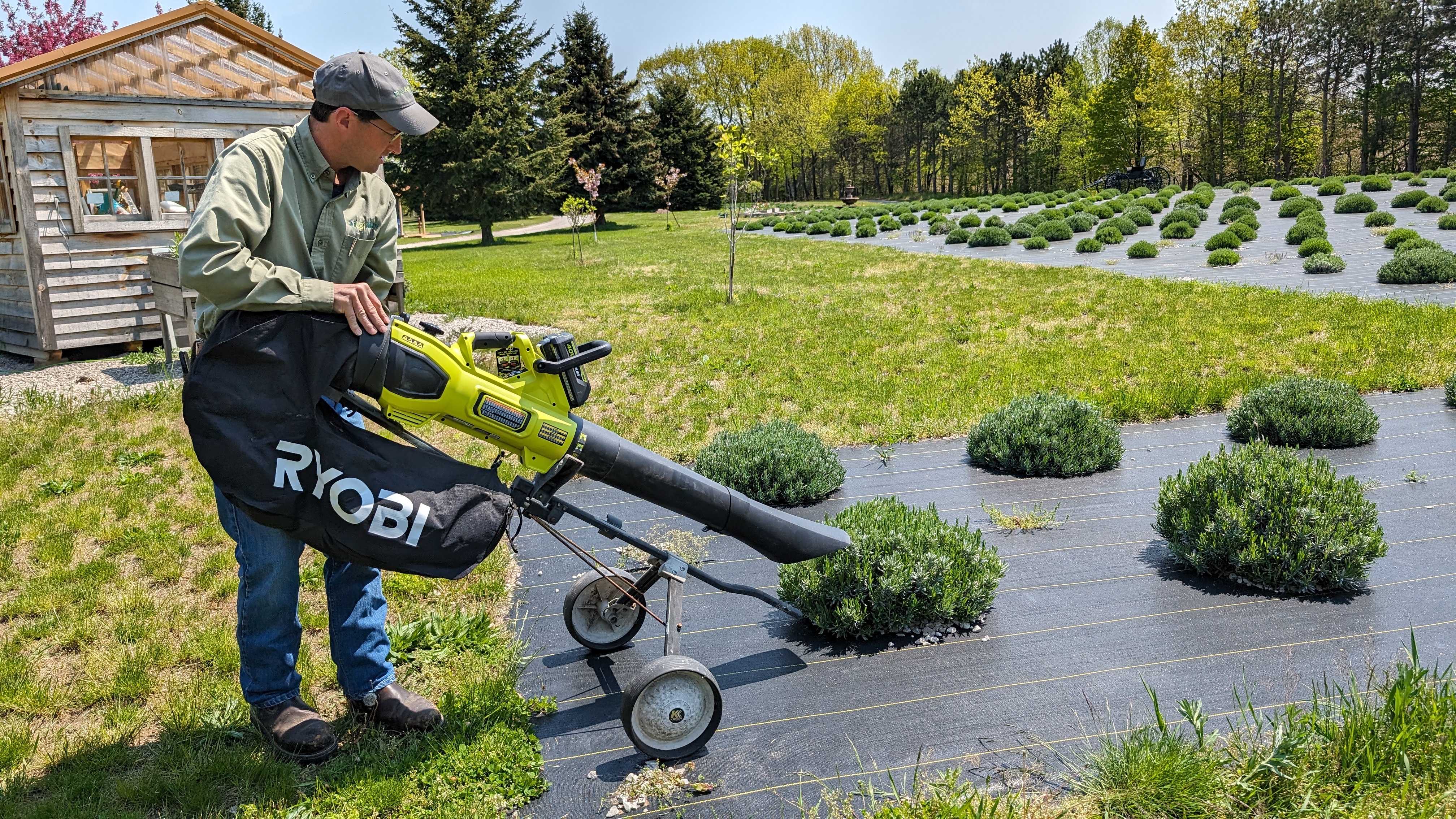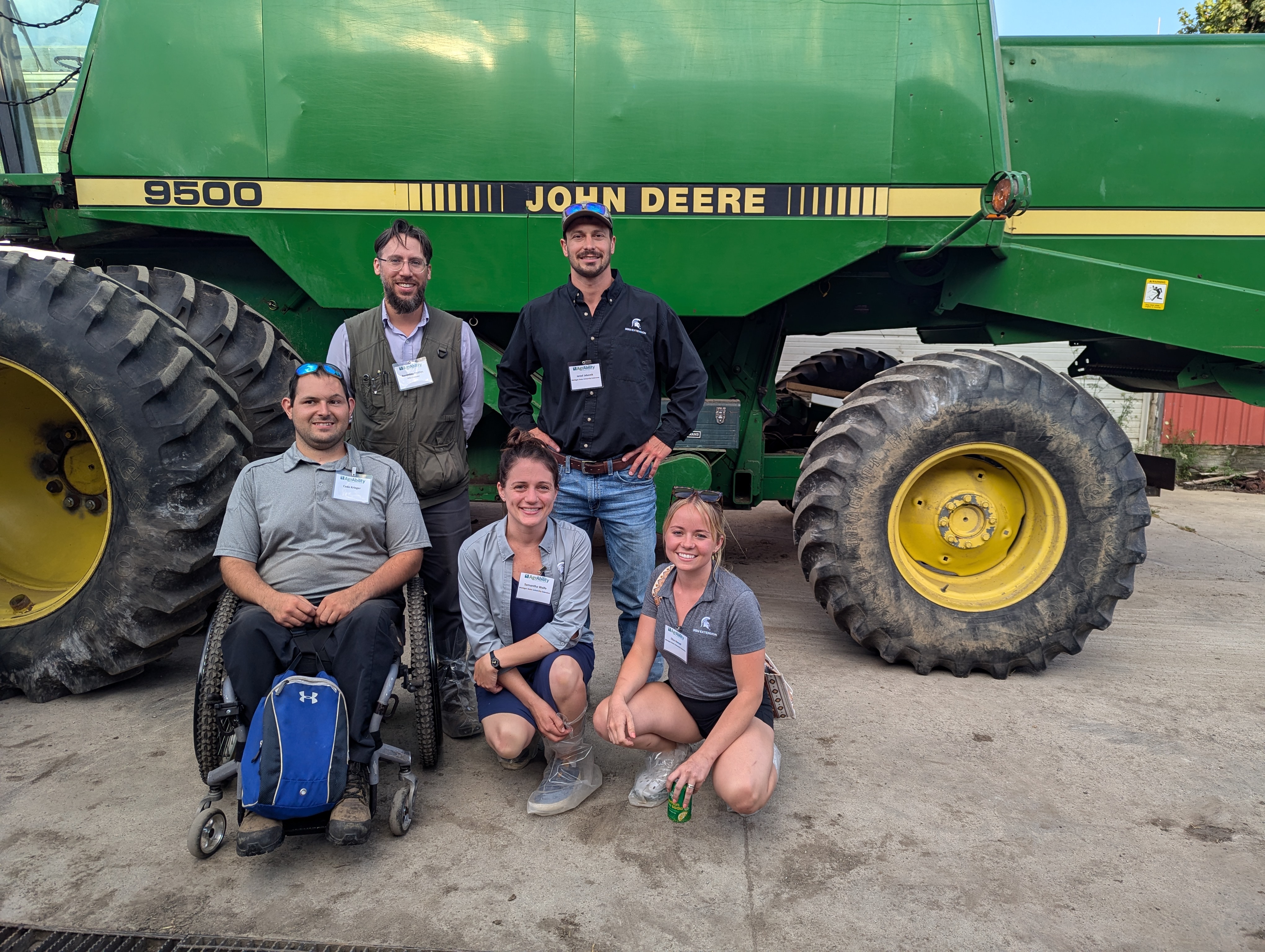
Helping Farmers with Disabilities or Injuries Continue Their Livelihood
DOWNLOADOctober 31, 2025 - Michigan State University Extension
- 1,003 non-fatal work-related farm injuries occurred in Michigan in 2022 and 2023 (MSU Division of Occupational and Environmental Medicine).
- 164 farmers with disabilities or injuries served by AgrAbility through farm evaluations and technical assistance in 2024 and 212 in 2023, with 72 new clients October 2024-2025.
- Over $1 million in funding provided by Michigan Rehabilitation Services to clients for assistive technology and equipment modifications in 2022-2024.
Priority Areas
Michigan AgrAbility helps farmers, farm families and others in the agricultural industry continue working after an injury, illness or disability. Funded by the USDA National Institute of Food and Agriculture, AgrAbility operates in 21 states through partnerships between land-grant universities and disability serving nonprofits. In Michigan, the program is a collaboration between Michigan State University (MSU) Extension and Easterseals MORC, with additional support from Michigan Rehabilitation Services. Together, they provide hands-on technical assistance, education and practical solutions to keep people farming safely and comfortably.
Impacts
Technical Assistance: The Michigan AgrAbility program commits to serving 150 clients per year through at
least 60 farm evaluations, ranging from 164 to 212 total clients per year in recent years.
Education: 21 presentations and 9 display booths reached 7,550 attendees from July 2024 to June 2025.
Marketing: The team made over 15 online posts in 2025. strong>Networking: The Alpha Gamma Rho Tau chapter continued its support; donations from 2012-2024 surpassed $150,000, including $34,000 raised at the annual beef preview show in 2024 and $23,000 in 2025.
Arthritis Screenings: A certified occupational therapy assistant visits farms with Spanish-speaking workers to offer free arthritis screenings and education.
Spanish-Language Resources: Provides free fotonovelas (photo stories) on arthritis and diabetes.
MSU Mechanical Engineering Capstone: 23 studentled projects developed low-cost, replicable assistive devices in 2024, including a swarm trap hive lifter for a Veteran beekeeper and beekeeping instructor, and a mechanized rolling kneeler cart for tending low-growing crops on small farms.
Learn more at canr.msu.edu/agrability or MichiganAgrAbility.org, or contact Samantha Wolfe at wolfesa4@msu.edu or Michigan AgrAbility at 1-800-956-4106.
Farrier Finds Support to Continue Working

One AgrAbility client is a farrier and hay producer for the horse market. A back injury and traumatic brain injury sustained in a vehicle accident in the 1980s have worsened with age. Despite chronic pain and functional limitations, she continues working as the primary income earner in her household, placing additional stress on her body. Ned Stoller, ag engineer and assistive technology professional with AgrAbility, worked with her to provide proper accommodation that allowed her to continue working more comfortably.
In addition to equipping the client with a grab bar on the tractor fender, extra steps, an air ride seat, rear-view mirrors, a loader for the tractor, and other hay-baling and shop equipment, the exoskeleton has proven to be an invaluable tool. The device fits like a vest on the torso with a padded hip belt that redistributes weight between the torso and legs. While wearing the exoskeleton, the client can not only lift more safely and comfortably, she can also work in a forward-leaning position for an extended period with less pain and fatigue and stand back up with less strain. She can also walk and move freely while wearing an exoskeleton, which allows her to continue her livelihood working with horses and her long-time clients.
"[AgrAbility] … developed a good plan that improved our ability to stay farming." AgrAbility client
Nurse and Veteran Lavender Growers Adapt to Maintain Their Fields


A client couple established a lavender farm on their family’s former cherry orchard as a retirement project. With more than 2,000 plants, they focus on cut flowers, agritourism and distilling essential oils. However, maintaining the fields became difficult due to fatigue and strain on their knees and backs. Kneeling is not possible because of arthritis, knee replacements, vertigo and other impairments. To manage the workload and keep the fields in good condition, they rely on a weed barrier and a gas-powered blower mounted on a dolly to move along the rows. Michigan AgrAbility outfitted the couple with rolling seated carts that have an adjustable height seat, basket and handles for use when not seated. With these simple accommodations, provided through donated funds from Alpha Gamma Rho Tau chapter to Easterseals, the couple is able to continue their work on their lavender farm.

"Just keep reaching out and making Michigan AgrAbility services available without judgement. Farmers are stubborn and will be the last to admit they ‘need’ help." AgrAbility client
"[The] individualized assessment and service was nice. Very helpful in increasing the ease and longevity of our farming operation." AgrAbility client
This project was supported by the AgrAbility Competitive Program of the USDA National Institute of Food and Agriculture (NIFA), grant number 2022-41590-38121. Any opinions, findings, conclusions, or recommendations expressed in this publication are those of the authors and do not necessarily reflect the view of the U.S. Department of Agriculture.



 Print
Print Email
Email

